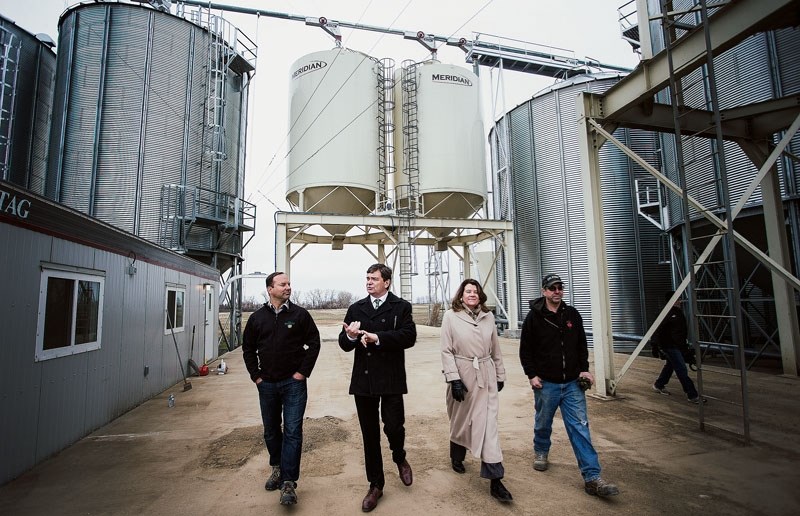Farmers and critics are celebrating the proposal for new legislation that would bring Alberta’s farming and ranching industries up to speed with the province’s labour laws.
Bill 6, the Enhanced Protection for Farm and Ranch Workers Act, presented in the legislature Tuesday, would give 60,000 farm and ranch workers the same basic protections that other workers have received for decades, such as the right to form unions, the right to refuse work if a task is deemed unsafe and the right to vacation and overtime pay, through changes to four pieces of legislation.
“Farming is one of the most dangerous occupations in the province,” said Don Voaklander, director of the Alberta Centre for Injury Control and Research, who has been advocating for better safety regulations within the agriculture industry for many years.
While fatalities among the working age population have started to decline with the introduction of new technologies, they have flat lined among children.
Recently, the province was heartbroken over the death of three sisters on a farm in Withrow, Alta. While the changes would only affect workers – although OHS does not delineate between relatives, neighbours and friends as long as they are contributing to the commercial enterprise – Voaklander hopes that the introduction of new health and safety laws will spur a cultural shift that will ultimately lead to a safer environment for children growing up on or around farms.
“I’m hoping with some structure around regulation and inspection it will help change the culture. Typically OHS doesn’t want to fine people; they don’t want to shut down anyone’s operations. They want to work in an educational manner. It’s all about working together to meet standards. And once standards apply then everyone becomes safer,” said Voaklander.
He said there seems to be a lack of understanding about safety standards that are commonly understood in other industries, due to the small, family nature of many operations.
John Boccock, a Sturgeon County dairy farmer, also hopes to see that shift.
Boccock lost part of his thumb while repairing a manure pump about 15 years ago. He said the seasonal pressures can often push farmers to make risky decisions.
“Farmers don’t have the best reputation for being the best employers,” said Boccock. “I think they need a little nudge. I’m glad this is happening, for everyone.”
Some changes will take effect as of Jan. 1, 2016, such as mandatory Workers’ Compensation Board insurance coverage for all farm and ranch workers and protection under the Occupational Health and Safety Act.
The province will work with industry professionals to develop occupational health and safety rules. This would take up to a year, said Jobs, Skills, Training and Labour Minister Lori Sigurdson, while changes to Employment Standards and Labour Relations legislation would come into effect in spring of 2016, following consultations regarding possible exemptions around seeding or harvesting seasons.
Consultations will begin immediately. Albertans can provide feedback online at work.alberta.ca or in person. A town hall meeting will be held in Leduc on Dec. 7 for those living in the Edmonton area.
Currently, Alberta is the only province in Canada where the agriculture industry is not covered by occupational health and safety regulations and there are no labour relations laws to ensure workers are entitled to minimum wage or holidays.




